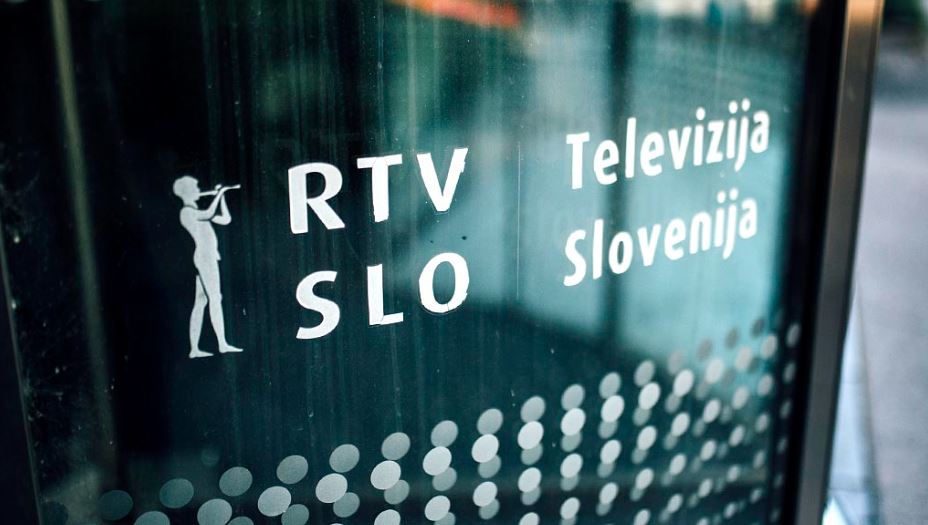The National Assembly adopted an amendment to the Law on Radio and television Slovenia, with which the government wants to withdraw politics from the public institution. 53 MPs voted in favour of the proposed amendment, which was considered according to the emergency procedure, while 26 were against. They also decided that the proposal to amend the Act on the Media, which was submitted by the SDS, was not suitable for further consideration.
According to the Minister of Culture, Asta Vrečko, the purpose of the amendment to the Law on Radio and Television Slovenia (RTVS) is to change the current way of managing the institution so that politics is withdrawn from the institution, political subordination and interference in personnel and editorial decisions are impossible, and to return the institution to the public and employees.
As she said, the amendment introduces a single council with 17 members instead of the current 29-member programme council and 11-member supervisory board of the institution. None of them will be appointed by the National Assembly.
Employees will choose six members from their ranks, and the remaining 11 members will be appointed based on public appeals by the Italian and Hungarian national communities, the president of the country based on a public appeal to registered religious communities, the Slovenian Academy of Sciences and Arts, the National Council for Culture, the Olympic Committee of Slovenia, Information Officer, Council for Sustainable Development and Environmental Protection, Human Rights Ombudsman, and National Council of Disability Organisations.
The mandate of the members of the current programme and supervisory board will end on the date of entry into force of the amendment, and they will continue their work until the institution’s board, which is introduced by the amendment, is established.
The public institution will be managed by a board consisting of four members, headed by the president of the board.
In the afternoon, the parliamentary groups of the coalition parties highlighted the advantages of the proposed amendment in the presentation of their positions. The change is necessary, emphasised Svoboda party. According to them, the programme council has become an extension of SDS party. According to their observations, this party scorns, as if to say that politics cannot depoliticise something. But the Gibanje Svoboda party is serious about its commitments, they assured.
It is time to stop cancelling broadcasts and censorship and for the public to get authentic information, the SD pointed out. According to them, RTVS is not ours or yours, and therefore it is not permissible for any politician to want to subjugate it.
In the meantime, Levica notes that RTVS is in agony, and its employees are caught in the jaws of political manipulation. But the hostages are not only employees, but also the entire population, which has suffered the greatest damage due to the kidnapping of RTVS, they added.
The parliamentary groups of the opposition, however, understand the proposal as a quick political change of the structure of RTVS to suit left-leaning parties. The SDS was critical because the proposal excludes the National Assembly from appointing members to the institute’s council. But, according to them, the National Assembly represents the people, as it is elected in elections. With the proposed amendment, we will get a state RTVS, they are convinced.
NSi party, however, believes that consideration of the proposal under the emergency procedure is not justified, as there are no emergency situations in Slovenia. According to them, the proposal beheads RTVS and turns it into a political body. RTVS must regain the trust of citizens regardless of their political orientation, they added.
In the general discussion of MPs, Mojca Šetinc Pašek (Svoboda) reminded that the urgent procedure is necessary because there is direct damage to the functioning of the state, and Slovenia has also become a negative cause for the European Commission to think that precisely because of what is happening in the field of media in Slovenia it should prepare media legislation for all member states.
Meanwhile, Branko Grims (SDS) assessed that the coalition only wants to “silence the truth”. With this aim, according to him, the proposal is also considered according to the urgent procedure. “You want to push out every different opinion and turn RTVS into an ultra-leftist brass band,” he said. In his opinion, the left is afraid of the truth, and the government’s measures in the media field must be seen in this light, he said.
Only an amendment to the SDS was filed, according to which the amendment would enter into force on December 31, 2023, but it was rejected.
When voting on the proposal to amend the Media Act, 53 MPs considered it unsuitable for further consideration, while 26 had the opposite opinion. In the SDS, they wanted to determine with it that the time in pre-election broadcasts intended for the presentation of candidates and political parties represented in the National Assembly or the European Parliament is the same for everyone.
In short, one more proof that the ruling majority is clearly “depoliticising” RTVS just as Putin’s Russia is “liberating” Ukraine…
By: C.R.


